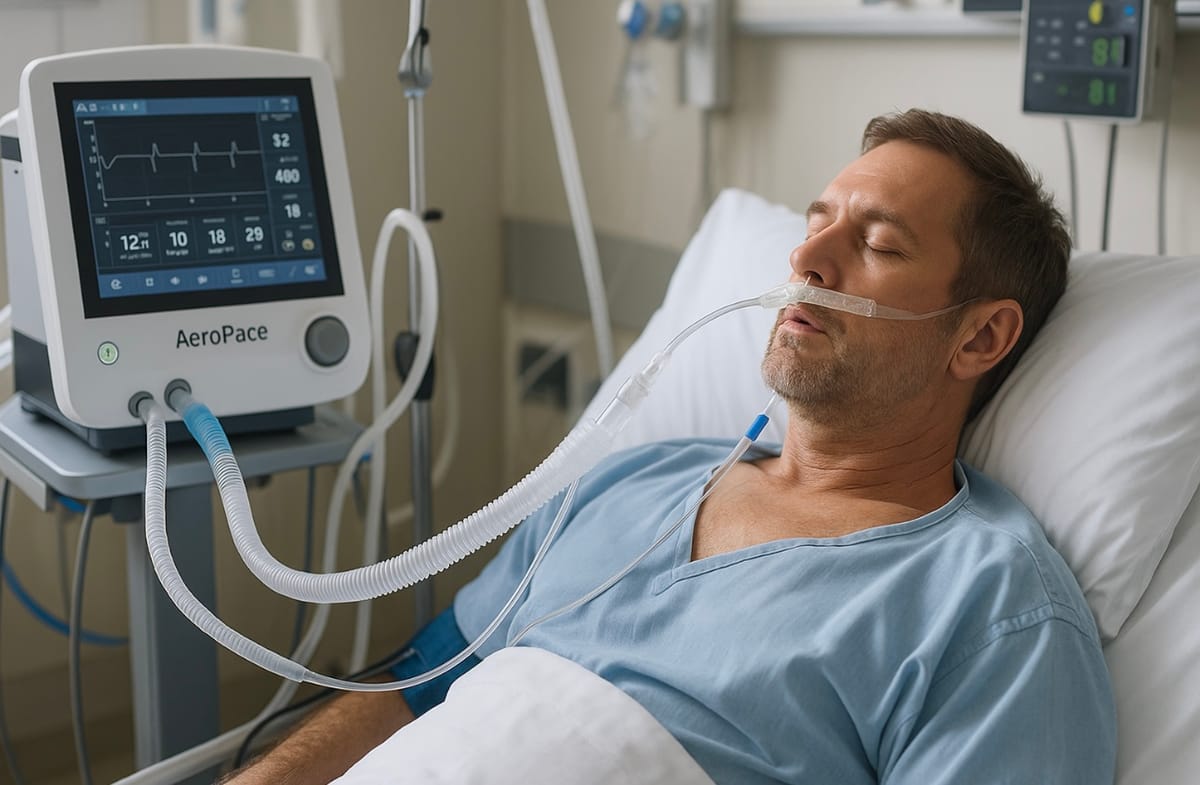AeroPace: Breakthrough Ventilator Accelerates ICU Patient Recovery
AeroPace boosts diaphragm strength by 50% and speeds up ICU patient recovery from ventilators by up to three days.

AeroPace: A New Solution for ICU Ventilator Patients
In the medical world, innovation in breathing support devices is a crucial milestone for ICU patients dependent on ventilators. Recently, the smart ventilator system AeroPace® has captured global attention after international clinical trials proved its ability to increase diaphragm strength by up to 50% and enable ICU patients to be weaned from ventilators up to three days faster than conventional methods.
RESCUE-3 Clinical Trial and Key Findings
AeroPace® was tested in a large-scale international clinical study called RESCUE-3, involving 223 adult patients at 48 ICU centers in the United States and Europe. The trial included patients who were difficult to wean off ventilators—those who had been intubated for at least 96 hours and had failed at least two weaning attempts. The results were striking: the AeroPace® group experienced a 50% improvement in diaphragm strength, measured by maximum inspiratory pressure (MIP). Moreover, average ventilator use decreased by 2.8 days. The rate of successful weaning significantly increased, while the risk of reintubation was cut by half and the need for tracheostomy within the first 30 days was also reduced.
How AeroPace Works
What makes AeroPace® different? This technology acts as a “personal trainer” for respiratory muscles. Using a special catheter placed in a major vein, AeroPace® sends electrical impulses to the phrenic nerve, causing the diaphragm to contract in sync with each breath. This process activates and strengthens the diaphragm muscle without compromising patient comfort or increasing the risk of serious side effects. Further studies have shown improvement in lung function and a decrease in typical complications faced by ICU patients who spend extended periods on ventilators.
Regulation and Global Recognition
AeroPace®’s advantages have been recognized by health authorities in the United States. In December 2024, the Food and Drug Administration (FDA) granted approval for AeroPace® for adult patients who are difficult to wean from ventilators. This innovation has also received New Technology Add-on Payment (NTAP) from CMS in the US and is backed by over 150 international patents. Currently, AeroPace® use is limited to the US and Western Europe, but global expansion is projected as further studies continue to yield positive results.
Clinical Impact and Benefits
Every extra day on a ventilator increases the risk of infection, muscle damage, and even death. By reducing ventilator time by up to three days, AeroPace® offers substantial benefits: fewer complications, faster recovery, and lower hospital costs. Patients who are weaned off ventilators more quickly also have better chances of returning to normal life after ICU care.
Challenges and Future Prospects
While the results are promising, AeroPace® is not suitable for all patients, especially those with pacemakers or defibrillators. Further research is needed to assess long-term benefits and cost-effectiveness on a larger scale. Continued development, such as the AeroNova® program, is underway to offer even better protection for vital organs during critical care.
AeroPace® stands as a beacon of hope in ICUs worldwide, offering faster and safer recovery for patients previously considered difficult to wean from ventilators. With strong clinical evidence and the support of leading regulators, AeroPace® has the potential to transform ICU standards globally.





Comments ()